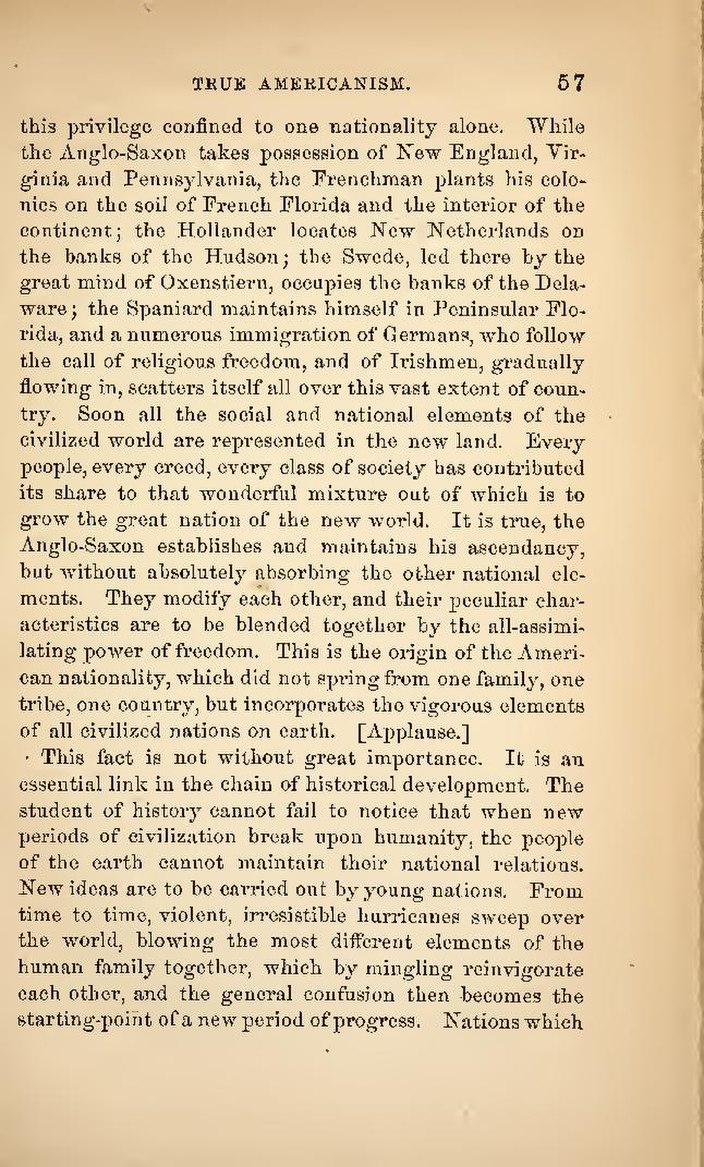this privilege confined to one nationality alone. While the Anglo-Saxon takes possession of New England, Virginia and Pennsylvania, the Frenchman plants his colonies on the soil of French Florida and the interior of the continent; the Hollander locates New Netherlands on the banks of the Hudson; the Swede, led there by the great mind of Oxenstiern, occupies the banks of the Delaware; the Spaniard maintains himself in peninsular Florida, and a numerous immigration of Germans, who follow the call of religious freedom, and of Irishmen, gradually flowing in, scatters itself all over this vast extent of country. Soon all the social and national elements of the civilized world are represented in the new land. Every people, every creed, every class of society has contributed its share to that wonderful mixture out of which is to grow the great nation of the new world. It is true, the Anglo-Saxon establishes and maintains his ascendancy, but without absolutely absorbing the other national elements. They modify each other, and their peculiar characteristics are to be blended together by the all-assimilating power of freedom. This is the origin of the American nationality, which did not spring from one family, one tribe, one country, but incorporates the vigorous elements of all civilized nations on earth. [Applause.]
This fact is not without great importance. It is an essential link in the chain of historical development. The student of history cannot fail to notice that when new periods of civilization break upon humanity, the people of the earth cannot maintain their national relations. New ideas are to be carried out by young nations. From time to time, violent, irresistible hurricanes sweep over the world, blowing the most different elements of the human family together, which by mingling reinvigorate each other, and the general confusion then becomes the starting-point of a new period of progress. Nations which
